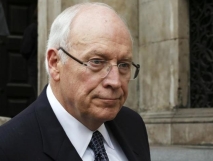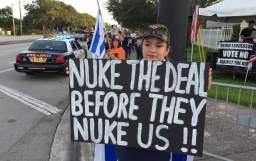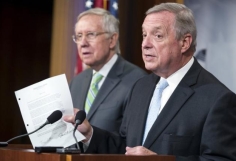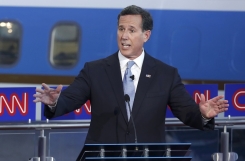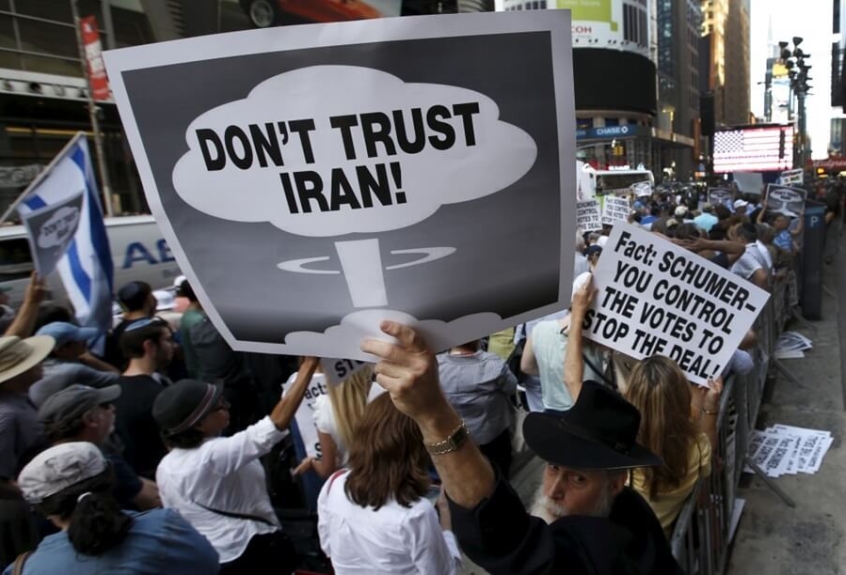
A Republican lawmaker from New Jersey warned of an "inevitable" nuclear war between the United States and Iran days before US Senate Democrats blocked for the third and final time last Sept. 17 a Republican-sponsored legislation meant to kill the Iran nuclear deal.
By a 56-42 vote, the Republican-majority Senate fell four votes short of the 60 votes needed to advance the measure in the 100-member chamber.
This cleared the way for the implementation of the accord, which is considered as the greatest foreign policy victory of President Barack Obama.
But as far as Republican Rep. Chris Smith is concerned, it could be a pyrrhic or hollow victory since the Iran nuclear agreement "poses an existential threat to Israel, our allies in the region—and even poses significant risks to the United States.''
In a speech he delivered in the House on Sept. 10, Smith warned that unless Congress rejected the Joint Comprehensive Plan of Action—which underlines Iran's agreement to accept restrictions on its nuclear programme, all of which would last for over a decade, and to submit to an increased intensity of international inspections under a framework deal—the possibility of a nuclear war would loom even bigger.
Apart from seeking to oppose the deal, Smith asked fellow congressmen to "reinstate comprehensive, robust sanctions and direct the Executive branch to resume the struggle to craft an enforceable accord to ensure no nuclear weapons for Iran—ever."
Smith's concern was echoed by other Republican lawmakers and the American public who believe that some provisions in the agreement need further improvement to strengthen the deal and ensure that Iran will not be able to build a nuclear weapon covertly and accelerate its nuclear programme.
The lawmaker also expressed concern on the provision in the agreement which supposedly contains the key restriction to Iran's nuclear programme. This is the 10-year ban on Iran from enriching uranium at high levels. This means that after 10 years, Iran could start enriching uranium again on an industrial scale, leaving the US and its allies with no effective means to prevent Iran from initiating an accelerated nuclear programme to produce the materials needed for a nuclear weapon.
Smith also pointed to the evidence proving that Iran has a longstanding nuclear collaboration with North Korea and is engaging in activities related to the development of a nuclear weapon.
He also noted that Iran's Supreme Leader Ayatollah Ali Khamenei had stated that he will "never" permit inspectors to inspect Iran's military bases.
Even after the agreement was signed, Smith also noted that the Iranian Minister of Defense was quoted saying that "Tehran will not allow any foreigner to discover Iran's defensive and missile capabilities by inspecting the country's military sites.''
Smith said Iran cannot be expected to disclose its ballistic missiles programme, which serves as the vehicle for delivering nuclear weapons, since this is not mentioned in the agreement. Iran cannot also be expected to divulge any information about its secret research and development programme regarding a nuclear device, including fitting in onto a ballistic missile, as these are also not covered in the deal.
"In light of the abundant evidence, what gives the administration certainty that the Iranians won't at some point during this agreement acquire fissile material beyond what they are allowed to produce for themselves or actual warheads from North Korea?" he asked.
According to Smith, Congress should also consider the consequences of providing funds for Iran as stated in the agreement, noting "this will drastically expand Iran's regional destabilisation efforts—from Israel to Iraq to Yemen to Lebanon and elsewhere."
"The administration disputes the figure of $150 billion to be released to Iran, but even a portion of that amount would provide significant resources to fund Iran's terrorism in the region—threatening our allies,'' he said.










